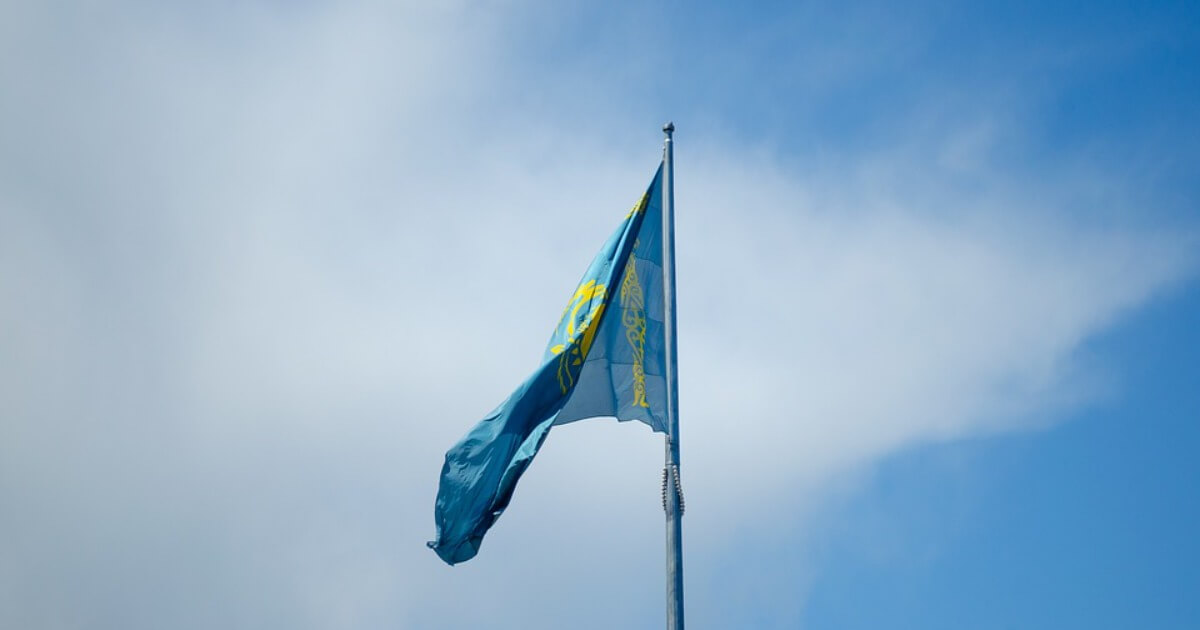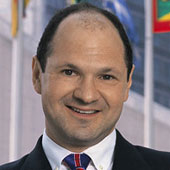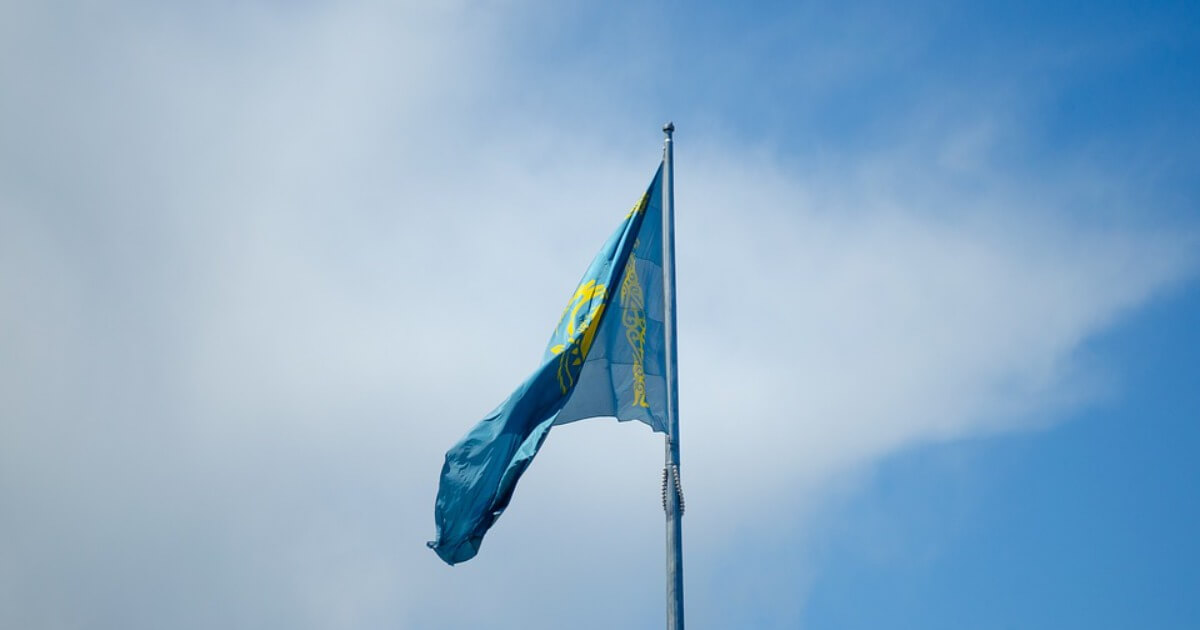Will Putin Put Down the Kazakh Spring?
Why the popular uprising against corrupt national elites in oil-rich Kazakhstan has Putin and Russia so nervous.
January 7, 2022

The people of Kazakhstan have risen against their rulers. The immediate impetus for the uprising was a rise in fuel prices. However, the discontent in the ex-Soviet republic runs a lot deeper.
The real source of trouble: Corruption
Kazakhstan is rich in minerals, natural gas and oil, but the Kazakh people are poor. Nursultan Nazarbayev, its long-time president and thought today the country’s strongman, has been in power ever since Kazakhstan became an independent country in 1991.
The lion’s share of Kazakhstan’s assets is controlled by the country’s roughly 100 richest families, including Nazarbayev’s own clan. Their wealth hardly ever trickles down to the ordinary people.
Thus, the protesters were rightfully fuming when the authorities labeled them terrorists. In reality, corruption – and lack of opportunity and democracy – is what makes the economic situation of ordinary Kazakhs so dire.
Why Putin is worried
This context also makes clear why Putin is worried: The economic plundering of Kazakhstan’s vast riches by corrupt bureaucrats is very similar to what happens in Russia.
And the fact that Kazakhs are acting up, while Russians as ever stay docile, attests to their courage – while underscoring the docility of the Russian people..
Putin’s cynical playbook
No thought is given to addressing the completely legitimate concerns of the Kazakh people about getting their fair share from the country’s vast mineral wealth.
Any move in that direction is inconceivable for Putin since that would create a terrible precedent for him and his cronies in Russia.
Instead, he prefers a classic move from the old, very cynical political playbook of despots and anti-democrats: Blame the opposition for the very transgressions (plundering and terrorism) which in reality are perpetrated by the elites.
A familiar song
As with Lukashenko in Belarus last year, Kazakh leaders are treating the world to the conspiracy theory that these events are the result of subversion by foreign forces trying to destabilize peaceful Kazakhstan – and even put an end to its sovereignty.
This is a song eerily familiar to Ukrainians. After all, that very same point has been made since the days of the Maidan. The idea that the people-at-large may yearn for freedom is simply inconceivable to the ex-Soviet elites that often still rule.
Deploying the Russian army
With Kazakh military and police not always being reliable if they are ordered to shoot their fellow citizens, especially to open fire without warning as the president has instructed them, the government appealed to Russia, and Russian paratroopers were promptly sent there – supposedly as peacekeepers.
This is not the first time the Russian military is moving in to defeat a popular uprising. Remember the Prague Spring in 1968? That attempt to build “socialism with a human face was rolled over by Soviet tanks. And before that, in 1956, the same fate befell the Hungarian revolution.
Recalling the Habsburgs
However, there is an even older precedent, when Austrian Emperor Franz Joseph I called upon his Russian counterpart Nicholas I to help him defeat the Hungarians who were seeking independence from Austria.
After the defeat of Napoleon in 1815, Austria, Russia and Prussia formed what they called a “Holy Alliance”. It was anything but that.
The unholy alliance was a deal by three tyrants to bat down any attempt at popular upheaval, democracy and secularism. So, when called upon Czar Nicholas was only too happy to oblige.
This time, the Kazakh government’s appeal to Russia also comes as part of its membership in the Collective Security Treaty Organization (CSTO), which includes Russia as well as a number of poor, and least democratic, ex-Soviet republics.
Today’s unholy alliance of dictators
Quite a few of these countries have “presidents for life” – think of Putin and Nazarbayev, as well as of Belarus’ own blood-soaked thug Alexander Lukashenko. This crew can certainly be called an “Unholy Alliance of Dictators.”
It is certainly no surprise that these dictators call upon each other to protect any fellow dictator against their own people.
The precedent 170 years ago
Back in the middle of the 19th century, the Hungarian bid for independence failed. So did most other revolutions of 1848. At the time, these events were called the Springtime of the Nations.
France fell under the dictatorship of Napoleon III and the German and Italian attempts to be unified were crushed as well.
Better outcomes than in 1848?
But the world has profoundly changed since 1848. The revolutionary mindset of that era produced the Communist Manifesto by Karl Marx and Friedrich Engels.
The next 100 years were marked by constant struggle between European governments and their own workers.
France went through another revolution in 1870, when the monarchy was abolished for good. Italy and then Germany became unified.
National aspirations continued to build across Europe for the remainder of the 19th century, until after World War I the three Empires collapsed.
A plethora of new states emerged in Central Europe. Then, early in the last of the 20th century, even the Soviet Empire crumbled.
Conclusion
The ideas of 1948 ultimately prevailed in Europe — even if it did take more than a century. Now that the freedom train is gripping parts of the post-Soviet space, events may move a lot faster.
The Unholy Dictators of our own times may thus find out very soon that their days are numbered and even the Putin-inspired CSTO alliance is powerless to save them. At least, that is what most Kazakhs are hoping.
Takeaways
The past as prologue? In 1848, Hungarians rebelled against Austrian domination and declared an independent state. Their national aspirations were crushed with the help of the Russian Czar and his troops. Will history repeat itself 170 years later in Kazakhstan?
Kazakhstan is rich in minerals, natural gas and oil, but the Kazakh people are poor. The lion’s share of Kazakhstan’s assets is controlled by the country’s roughly 100 richest families. Their wealth hardly ever trickles down to the ordinary people.
Corruption is what makes the economic situation of every-day Kazakhs so dire. This explains why Putin is worried: The economic plundering of Kazakhstan’s vast riches by corrupt plutocratic elites is very similar to the path in Russia.


